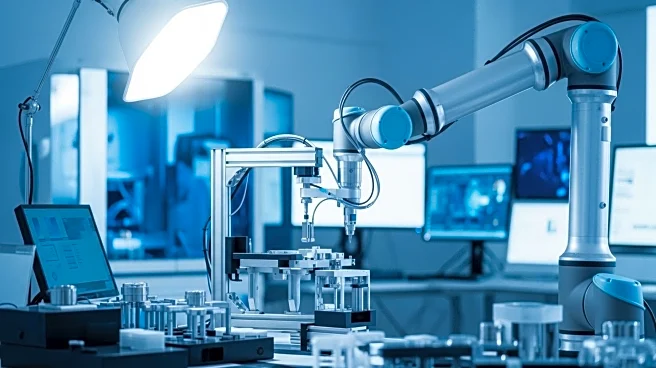What is the story about?
What's Happening?
Beckman Coulter Life Sciences, a company known for its laboratory automation and innovation, has announced a strategic partnership with Hombrechtikon Systems Engineering (HSE), a Swiss firm specializing in customized automation solutions for the life sciences sector. This collaboration aims to revolutionize nucleic acid quantification by integrating high-throughput liquid handling into molecular biology workflows. The partnership introduces an automated system that streamlines processes such as normalization and yield characterization, thereby bridging existing workflow gaps. The integration of the HSE eviDense UV Photometer into Beckman Coulter's Biomek i-Series workstations allows for real-time absorbance measurements, enhancing efficiency and precision. This system also simplifies fluorometric analysis, providing results in as little as 20 minutes for 96 samples. The collaboration is designed to maximize laboratory efficiency by reducing manual intervention and increasing data integrity.
Why It's Important?
The partnership between Beckman Coulter Life Sciences and HSE is significant for the scientific community, particularly in the fields of genomics and drug discovery. By automating nucleic acid quantification, laboratories can achieve faster and more accurate results, which is crucial for timely research and development. This advancement reduces the manual workload, minimizes user-induced errors, and enhances data reliability, which are critical factors in high-stakes research environments. The ability to perform real-time data-driven decision-making within a unified platform can accelerate the pace of scientific discoveries and innovations. Laboratories stand to gain increased efficiency, reliability, and scalability, which can lead to cost savings and improved research outcomes.
What's Next?
As the integration of these automated systems becomes more widespread, laboratories may experience a shift towards more data-driven and automated workflows. This could lead to further innovations in laboratory technology and potentially influence the development of new research methodologies. Stakeholders in the life sciences and diagnostics sectors may respond by adopting similar technologies to remain competitive. Additionally, the success of this partnership could encourage further collaborations between technology providers and research institutions, fostering an environment of innovation and efficiency in scientific research.
















